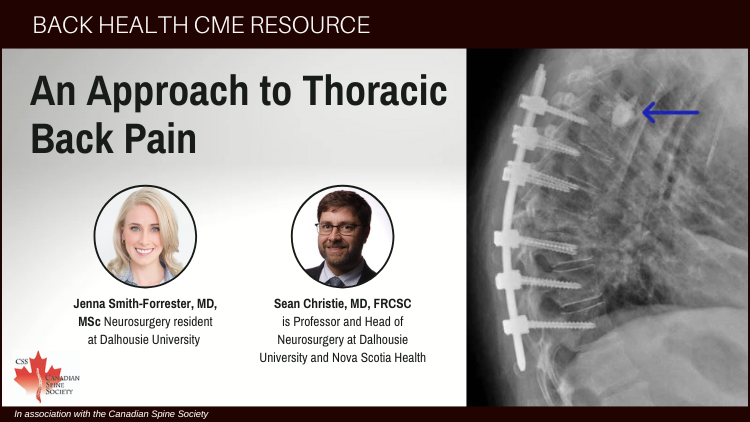Post-test: An Approach to Thoracic Back Pain
| Questions | 5 |
|---|---|
| Attempts allowed | Unlimited |
| Available | Always |
| Pass rate | 75 % |
| Backwards navigation | Allowed |
| Questions | 5 |
|---|---|
| Attempts allowed | Unlimited |
| Available | Always |
| Pass rate | 75 % |
| Backwards navigation | Allowed |
| Questions | 3 |
|---|---|
| Attempts allowed | Unlimited |
| Available | Always |
| Pass rate | 75 % |
| Backwards navigation | Allowed |

| Questions | 3 |
|---|---|
| Attempts allowed | Unlimited |
| Available | Always |
| Pass rate | 75 % |
| Backwards navigation | Allowed |
Dr. Michael Gordon recently retired after a fulfilling career as a geriatrician that spanned 56 years, 44 of which he spent working at the Baycrest Center in Toronto. He is Emeritus Professor of Medicine at the University of Toronto. Dr. Gordon is a recognized ethicist and a thought leader on all topics of care of the elderly and end-of-life decisions. Currently, Dr. Gordon provides part-time professional medical consulting mainly in the domain of cognition and memory loss.
| Questions | 3 |
|---|---|
| Attempts allowed | Unlimited |
| Available | Always |
| Pass rate | 75 % |
| Backwards navigation | Allowed |
Dr. Marina Malak is a family physician in Mississauga, Ontario and a lecturer and faculty member at the University of Toronto. She is actively involved in medical advocacy, and is a board member of the Mississauga Primary Care Network. She is also a member of the National Committee of Continuing Professional Development at the College of Family Physicians of Ontario, and a member of the Research Ethics Board at Trillium Health Partners.
She is passionate about patient care; medical education; and promoting mental, physical, and emotional wellness. She enjoys reading, writing, public speaking, puzzles, doodling in her bullet journal, and creating drawings on Procreate.
| Questions | 3 |
|---|---|
| Attempts allowed | Unlimited |
| Available | Always |
| Pass rate | 75 % |
| Backwards navigation | Allowed |
| Questions | 3 |
|---|---|
| Attempts allowed | Unlimited |
| Available | Always |
| Pass rate | 75 % |
| Backwards navigation | Allowed |
| Questions | 3 |
|---|---|
| Attempts allowed | Unlimited |
| Available | Always |
| Pass rate | 75 % |
| Backwards navigation | Allowed |